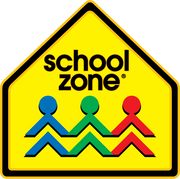At School Zone, we know that building strong literacy skills early on sets the stage for lifelong learning. These skills go beyond just reading and writing—they're about understanding and communicating effectively. According to UNICEF, nurturing these abilities from a young age is crucial for a child's development. They note, “In the first few years of life, more than one million neural connections are formed each second – a pace never repeated again.” One playful way to enhance literacy skills is by using rhyming words, which make learning both fun and interactive for young children.
Understanding core literacy skills
Literacy skills are the building blocks of education, including reading, writing, and comprehension. Here's a closer look at these essential components:
- Reading: Understanding and interpreting written language.
- Writing: Expressing thoughts and ideas in written form.
- Comprehension: Grasping and making sense of what is read or heard.
Mastering these skills opens doors to information, effective communication, and engaging with the world. As children grow these skills, they gain confidence and are better prepared for school and beyond.
The impact of rhyming words on literacy
Rhyming words may seem like nothing more than amusing wordplay, but they are actually a powerful tool in literacy development, especially for young learners. They help children, particularly in kindergarten, enhance their phonemic awareness—the ability to hear, identify, and manipulate sounds in words. This foundational skill is crucial for reading and writing.
Rhyming words can significantly boost vocabulary and recognition of sound patterns. According to Sweet for Kindergarten, early exposure to rhyming offers benefits like:
- Improving phonemic awareness by understanding sound patterns – They note this is a “strong predictor of a child's success in learning to read.”
- Enhancing memory through rhythmic patterns – Rhyming words are easier to remember. They stick!
- Building vocabulary with new rhyming words – Kids are more likely to hear and use new words that rhyme.
- Supporting reading readiness with strong sound recognition – Rhyming words help kids understand that words share sound patterns that create word families.
And let’s not forget: rhyming words are definitely fun. Rhyming poems and sayings have made kids smile for hundreds of years!
Enhancing reading comprehension with rhyming
Rhyming activities are not only fun but also enhance reading comprehension. Here are some strategies:
- Rhyming Games: Play games that match rhyming words to help children understand word patterns.
- Storytime with Rhymes: Choose rhyming books and pause to let children predict rhyming words, encouraging them to think about the story.
- Rhyming Poems: Introduce simple poems and have children identify rhyming words to focus on sounds and meanings.
- Interactive Resources: Use resources like School Zone’s Anywhere Teacher online learning program for ages 2-8 to explore books and activities that combine rhyming with comprehension exercises.
These activities make reading comprehension fun and engaging while reinforcing learning.
Combining rhyming with name practice sheets
Pairing rhyming activities with name practice sheets is a great way to build literacy skills. These sheets help children recognize letters and spell their names, key steps in developing reading and writing abilities.
Here's how to integrate these activities:
- Letter Recognition: Use name practice sheets to help children learn the letters in their names.
- Spelling Practice: Repeatedly writing their names improves spelling and understanding of word structure.
- Rhyming Games: Find rhyming words with parts of their names to make learning playful.
Engaging games like Rhyming Bingo and Rhyming Memory Match can add to the learning fun. Rhyming Bingo can use just words, with players matching the word called to a rhyming word on their bingo card, just pictures, or a combination. Trend has created a boxed Rhyming Bingo game that can be played 6 ways. Simply Kinder offers a free printable rhyming bingo game for kindergarten to those with a printables membership.
Fostering literacy using rhymes at home
Parents and caregivers play a vital role in supporting literacy development at home. Here are some tips:
- Daily Reading: Set aside time each day to read together with rhyming books to keep it engaging.
- Sing Songs: Nursery rhymes and songs introduce rhyme and rhythm.
- Create Rhymes: Encourage your child to make up their own rhymes to boost creativity and phonemic awareness.
- Incorporate rhyming games into daily routines: Start a story, and ask your child to continue it with a rhyming word. Use a rhyming story like Jog, Frog, Jog to get things started.
- Use School Zone resources: These include Start to Read! books, workbooks, flash cards, and the previously mentioned Anywhere Teacher to reinforce key concepts.
Rhymes make for good times and good learning
In today's world, strong literacy skills are more important than ever. By incorporating fun elements like rhyming words into everyday learning activities, children can enhance their phonemic awareness and expand their vocabulary, making them more fluent readers and communicators.
Rhyming activities boost reading comprehension and make learning a joy. By integrating rhyming with tools like name practice sheets, children also improve letter recognition and spelling abilities.
At School Zone, we're dedicated to supporting your child's educational journey. We offer a wealth of activities and resources to help you feel confident that your child is gaining the skills they need to excel including reading readiness and early reading. Today is the foundation for tomorrow and beyond, and strong reading skills deliver lifelong benefits!











